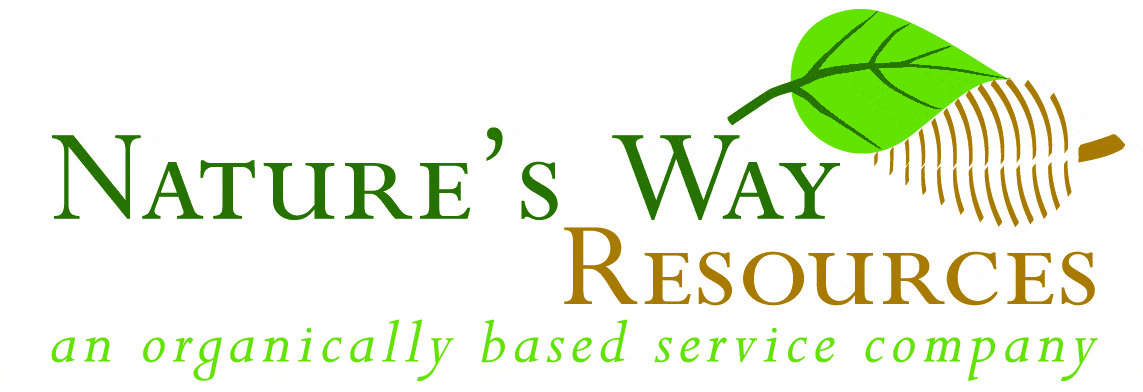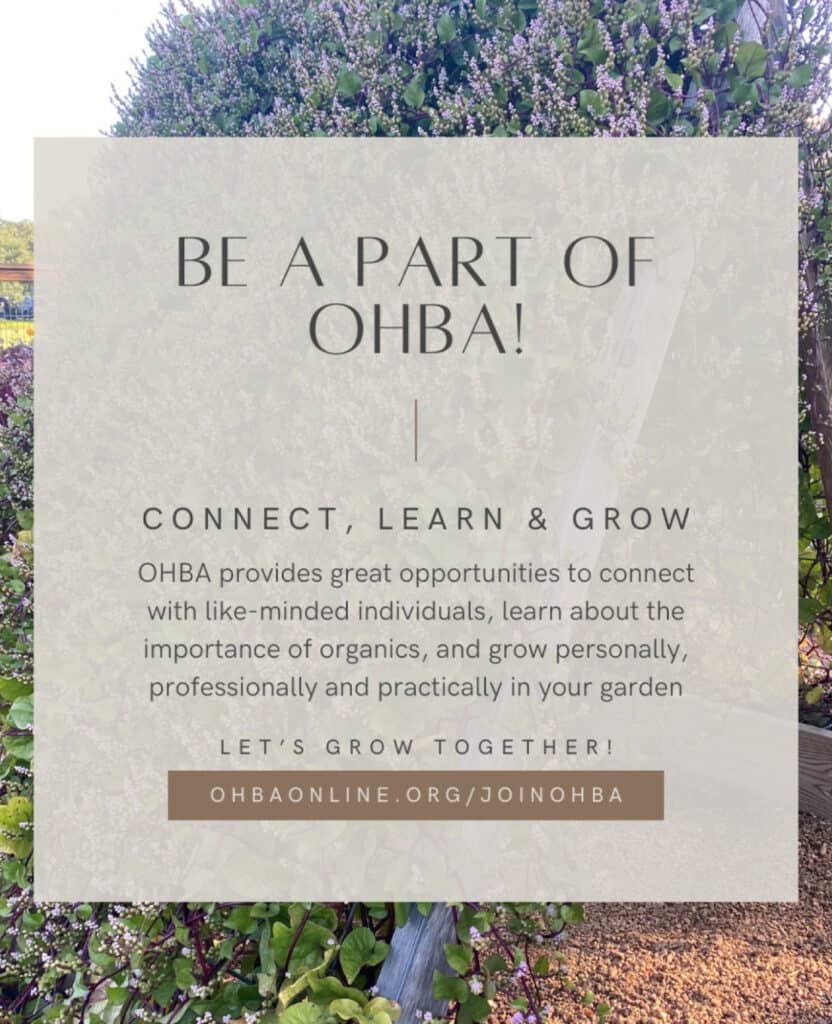John's Corner:
Fresh Water & Phosphorus
News from the Wonderful World of Soil & plants 43
By: John Ferguson
Fresh Water and Phosphorus, Carbon Dioxide, Yaupon, earthworms, Artificial Fertilizers, Regenerative Farming
A paper in the journal “Water Resources Research” (January 2018) stated that the freshwater resources on Earth are overly enriched with phosphorus (P). This leads to potentially toxic algal blooms and less available drinking water and human health problems. The two leading causes of this problem are artificial fertilizers (38%) and human sewage (54%). This is another good reason to only use organic fertilizers and be part of the solution rather than part of the problem.
One of the effects of increasing carbon dioxide (CO 2 ) levels is the decreasing nutrient density of foods. This effect is starting to have ecological ramifications. For example higher carbon dioxide levels allowed algae to grow faster. However the algae were of far lower nutrient density and did not provide the needed nutrients for zooplankton which eats algae to thrive. Without zooplankton larger organisms do not have food, and the problem moves up the food chain. Nutrient rich foods are critical to our health. Due to the changing nutrient density in foods it is estimated that 150 million people will be at risk for protein deficiency, and iron (Fe) deficiency will affect a billion pregnant women at the same time. We are just now beginning to feel the effects of this nutrient collapse caused by increased carbon dioxide and the effects it will have on entire ecosystems. Another example is the drop in protein content of pollen. As gardeners we are concerned about our pollinators like honeybees. Researchers have found that protein levels in goldenrod pollen have decreased by over 33% from 1850’s levels. The reason to grow our own fruits and vegetables sustainably using organic methods continue to increase.
I read an article the other day about the common Yaupon ( Ilex vomitoria ). Besides being a beautiful hedge plant that is drought and salt tolerant, this native is used to make a tea that is between black tea and coffee in caffeine content. One can make the tea yourself or order it in bags like black tea. There is a local supplier in Cat Springs, Texas a little Northwest of Sealy (www.CatSpringTea.com).
I get asked a lot of questions about earthworms and many of them regard pathogen destruction in our gardens and yards. Most gardeners know that earthworms concentrate nutrients for plants and help aerate and loosen our soils along with producing plant growth hormones. Another service that earthworms provide is pathogen reduction from any source, whether from bird droppings to cat and dog feces. Earthworms kill salmonella, e-coli, fecal streptococci, shigella, helminths ova and many more things that cause human health problems. The Journal of Environmental Quality (January 2018) had a recent study on this process “A Comprehensive Review of the Fate of Pathogens during Vermicomposting of Organic Wastes”. Many artificial fertilizers, pesticides, and some herbicides kill our extremely valuable earthworms. Just another reason to use modern gardening methods based on biology better known as Organic Methods.
The speakers at a recent OHBA (Organic Horticulture Benefits Alliance) seminar, Dr. David Montgomery and Anne Bikle sent me a article they recently published, “Junk Food Is Bad For Plants, Too – How a steady diet of (artificial) fertilizers turned crops into couch potatoes.”
http://nautil.us/issue/34/adaptation/junk-food-is-bad-for-plants-too
A few thoughts from their paper and I added a few comments. High yielding crops fed artificial fertilizers have lower levels of minerals and nutrients. Archived samples of wheat from 1873 to 1995 found major declines in iron (Fe) and zinc (Zn). A 2009 study found up to 40% declines in the mineral content of fruits and vegetables over the last 50-70 years. The plant breeding programs at our universities are one of the causes as the focus was on yields (profit) and not quality. One example is the russet potato, if grown on the same soil side by side a small fingerling potato. For example the small fingerling potato will have more iron per unit of biomass that the russet which is far less nutrient dense (similarly for other nutrients). Another study using USDA data found that we have to eat four ears of corn to get the same nutrition that one ear of corn had in 1903. As a result we get calories that make us fat and contribute to diabetes, not the required nutrients that make us healthy. Plants also produce phytochemicals that have many health benefits. In general the closer the crop is to its wild relatives the higher the levels of phytochemicals. Also plants grown with artificial fertilizers also have less phytochemicals in them. This is a good reason to plant heirloom varieties of vegetables and grow them organically. The obsolete methods using toxic rescue chemicals do not provide the plants with what they need to prevent disease or pests, heal from injuries, or fend off pathogens. Contrary to what the chemicals companies have taught us, fast plant growth does not equal plant health. In nature plants provide root exudates to feed the microbes and the microbes give to the plant many things from minerals and phytochemicals to vitamins. The system is mutually beneficial for both the microbes and the plants. When we use artificial fertilizers we screw up the system, the plants quit producing root exudates for the microbes, so the microbes quit giving the plants all the other good stuff and quit protecting the roots from soil pathogens. “Hence, we end up with a big fat high yielding crops that look good on the outside but are poor in minerals and phytochemicals on the inside.” Note: Other research has shown that many of the hybrid crops have lost the ability to absorb minerals and other nutrients even if they are present in the soil. Anne and David use an analogy that I like: “Soils rich in organic matter are like human diets rich in fiber. Each is an important food source for the root and gut microbiomes, respectively.”
Anne Bile and Dr. David Montgomery have authored several great books and information can be found on their website: http://www.dig2grow.com/
As gardeners we know the importance of soil from growing plants to cleaning the water and air. However, I am always amazed at how many folks do not value soil. Below is a link to an nice article in the New York Times on the value of soil on fighting climate change that was sent to me.
https://www.nytimes.com/2018/04/18/magazine/dirt-save-earth-carbon-farming-climate-change.html
Another link that was sent to me is a short video on regenerative farming and how it improves the soil.
https://www.carbonnationmovie.com/about/clips/244-one-hundred-thousand-beating-hearts-short-film
Most gardeners are very concerned about their health. Now there is an independent lab called the Consumer Wellness Center Lab that allows you to test almost anything for heavy metals, trace minerals and nutritive elements. Now you can find out whether your favorite supplements, cosmetics, super foods, drinking water, garden soil, or even hair contain heavy metals such as mercury, lead, cadmium or arsenic. With lab instrument sensitivity in the low-ppb (parts per billion) range, our ICP-MS tests can pick up almost any trace amount of toxic elements or heavy metals.
Now you can with the Consumer Wellness Center Lab test kits
http://cwclabs.naturalnews.com/CWC-Labs.html
There was a nice short article on the health benefits of gardening in Natural News this week: https://www.naturalnews.com/2018-04-26-the-many-health-benefits-of-gardening.html

